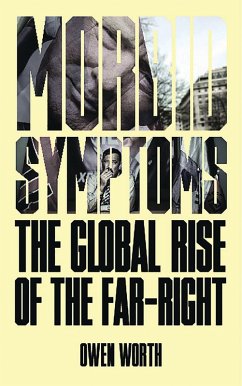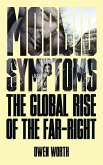As established centrist parties across the Western world continue to decline, commentators continue to fail to account for the far-right's growth, for its strategies and its overall objectives.
Morbid Symptoms examines the far-right's ascendancy, uniquely tracing its history from the end of the Cold War, revealing how its different dimensions have led to a series of contradictory strategies and positions that often leave their overall significance unclear. From the United States to Russia and from Britain across Europe to Greece, Owen Worth's analysis reveals that the left's failure to mount a radical alternative to the prevailing order has allowed the far-right to move in and provide an avenue for discontent and for change. Crucially though this avenue hasn't necessarily offered a definite alternative to the status quo as yet, meaning there is still a chance to change its significance in the wider global order.
This is an essential primer to the future of international politics and international relations.
Morbid Symptoms examines the far-right's ascendancy, uniquely tracing its history from the end of the Cold War, revealing how its different dimensions have led to a series of contradictory strategies and positions that often leave their overall significance unclear. From the United States to Russia and from Britain across Europe to Greece, Owen Worth's analysis reveals that the left's failure to mount a radical alternative to the prevailing order has allowed the far-right to move in and provide an avenue for discontent and for change. Crucially though this avenue hasn't necessarily offered a definite alternative to the status quo as yet, meaning there is still a chance to change its significance in the wider global order.
This is an essential primer to the future of international politics and international relations.









